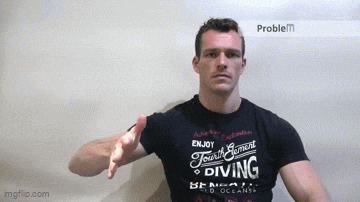Water
- Affects quality of hearing
- Risk of infection
- Cold water shock may cause dizziness
How do you know if you have swimmer's ear? Oh...you'll know. If you tug or pull on your ear, it will hurt.
Advice: Stop using cotton swabs! Yes..I know it feels good. Stop. Particularly the day(s) before a dive. You think you are "cleaning" your ear, when you are actually "damaging" your ear.
Prevention: Use ear drops containing vinegar. Often referred to as "ear beer". It replaces the acidic/antiseptic properties of natural ear wax.
Cure: A visit to your doctor for antibiotics
Pressure
- Trauma / damage
- Decompression sickness
- Dizziness
What it might feel like... You are unable to equalize your ears and the pressure keeps building and you keep descending. Then all of a sudden there is a release of the pressure and you're relieved that it has been resolved. You might feel a slosh of water enter your ear and if it's cold water...a spot of dizziness which resolves itself quickly. You can now continue your dive. Yeah! Except.....your middle ear is now full of water and you have about 2-5 hours before severe pain slams you hard.
Bad Advice: "Don't blow too hard!"
Good Advice: (For Valsalva - pinch nose/blow) "Don't blow for more than 5 seconds"

How often should I equalize when descending? Constant. No seriously...DAN recommends attempting to equalize EVERY FOOT of descent.
I can't get my ears to equalize...now what? Stop your descent! Signal to your buddy Move up a few feet and try again. DO NOT CONTINUE DESCENT
Dizziness vs Vertigo
They are not the same.- Dizziness - the feeling of lightheadedness or about to faint.
- Vertigo - the sensation that the room or person is moving or spinning
What about my Sinuses?
Pressure and pain is not restricted to the ears. You can feel pressure and have difficulty equalizing the sinus cavities too. This is why you should NEVER dive with a sinus infection or a cold/flu or anything that disrupts air flow between your nose and mouth. There are NO effective/safe equalization techniques for the sinus cavities.I'll just take a preventative decongestant
Sudafed is known in diving circles as "scubafed". Though it can help certain divers or certain situations, it should NEVER be used routinely and NEVER used in an attempt to overcome a known congested situation such as having a cold or otherwise unable to clear their sinuses. Yes...many divers pop a decongestant before every dive because "nothing bad has happened before" (normalization of deviance)...that does not make it prudent or wise for you as well.Advice: If you think you need it for the next dive - consider not diving instead
